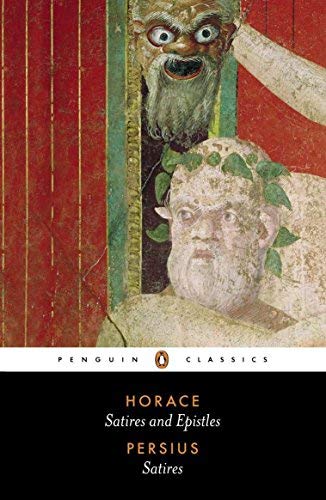What do you think?
Rate this book


Paperback
First published January 1, 25
Settle down then please and pay attention. I’m talking to all
who are plagued by the curse of ambition or a morbid craving for money,
all who are obsessed with self-indulgence or gloomy superstition. —Horace, Satires, 2.3
There are certain people, you see, who detest this kind of writing.
for most deserve a scolding. —Horace, Satires, 1.4.24-25
Don’t seek mass adulation . . .
. . . I’m happy if the better classes applaud me . . .
. . . only contempt for the rest. —Horace, Satires, 1.10
__________
But if you were able
to get rid of your worries—those cold showers that damp you down—
You would soar above to the place where heavenly wisdom leads.
That is the task, that’s the pursuit we should all engage in. —Horace, Epistles, 1.3
__________
I’d exclude myself from those who can properly be called
poets. You would not consider it enough simply to turn
a metrical line. Nor, if a man wrote, as I do
in a style rather close to prise, would you count him as a poet.
The honour of that name should be kept for someone with a natural
gift, an inspired soul, and a voice of mighty music. —Horace, Satires, 1.4.39-44